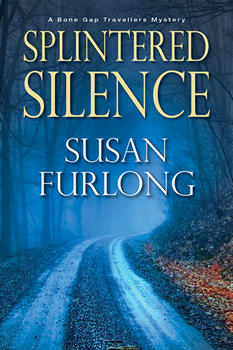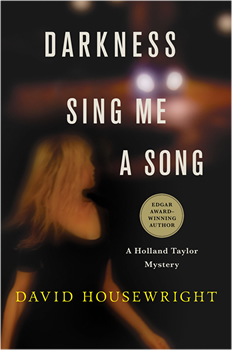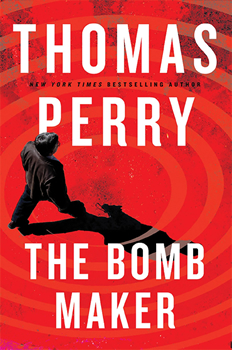

January 15 – 21: “Do names reflect the character of the character?”
 Character names – the first names can date an individual. Do names reflect the character of the character and do they offer their own tensions by defying a time period? Join ITW Members Tim Waggoner, Susan Furlong, Marietta Miles, David Housewright and Thomas Perry as they discuss character names. Scroll down to the “comments” section to see what the authors have to say!
Character names – the first names can date an individual. Do names reflect the character of the character and do they offer their own tensions by defying a time period? Join ITW Members Tim Waggoner, Susan Furlong, Marietta Miles, David Housewright and Thomas Perry as they discuss character names. Scroll down to the “comments” section to see what the authors have to say!
~~~~~
 Tim Waggoner has published close to forty novels and three collections of short stories. He writes original dark fantasy and horror, as well as media tie-ins, and his articles on writing have appeared in numerous publications. He’s won the Bram Stoker Award, been a finalist for the Shirley Jackson Award and the Scribe Award, his fiction has received numerous Honorable Mentions in volumes of Best Horror of the Year, and he’s twice had stories selected for inclusion in volumes of Year’s Best Hardcore Horror. He’s also a full-time tenured professor who teaches creative writing and composition at Sinclair College in Dayton, Ohio.
Tim Waggoner has published close to forty novels and three collections of short stories. He writes original dark fantasy and horror, as well as media tie-ins, and his articles on writing have appeared in numerous publications. He’s won the Bram Stoker Award, been a finalist for the Shirley Jackson Award and the Scribe Award, his fiction has received numerous Honorable Mentions in volumes of Best Horror of the Year, and he’s twice had stories selected for inclusion in volumes of Year’s Best Hardcore Horror. He’s also a full-time tenured professor who teaches creative writing and composition at Sinclair College in Dayton, Ohio.
 Susan Furlong was introduced to the American Irish Traveller community when a family of Travellers worked on her home. After extensive research, her fascination with this itinerant subculture became the basis for her new suspense series. Susan contributes to the New York Times bestselling Novel Idea Mysteries, under the pen name Lucy Arlington, and is the author of other mysteries as well. Raised in North Dakota, she graduated from Montana State University. She and her family live in central Illinois.
Susan Furlong was introduced to the American Irish Traveller community when a family of Travellers worked on her home. After extensive research, her fascination with this itinerant subculture became the basis for her new suspense series. Susan contributes to the New York Times bestselling Novel Idea Mysteries, under the pen name Lucy Arlington, and is the author of other mysteries as well. Raised in North Dakota, she graduated from Montana State University. She and her family live in central Illinois.
 Marietta Miles’ shorts and flash can be found in Thrills, Kills and Chaos, Flash Fiction Offensive, Yellow Mama, Hardboiled Wonderland and Revolt Daily. Her stories have been included in anthologies available through Static Movement Publishing and Horrified Press. She is rotating host for Noir on the Radio, Dames in the Dark and contributor to Do Some Damage Writer’s Blog. Her first book, ROUTE 12, was released February of 2016. Born in Alabama, raised in Louisiana, she currently resides in Virginia with her husband and two children.
Marietta Miles’ shorts and flash can be found in Thrills, Kills and Chaos, Flash Fiction Offensive, Yellow Mama, Hardboiled Wonderland and Revolt Daily. Her stories have been included in anthologies available through Static Movement Publishing and Horrified Press. She is rotating host for Noir on the Radio, Dames in the Dark and contributor to Do Some Damage Writer’s Blog. Her first book, ROUTE 12, was released February of 2016. Born in Alabama, raised in Louisiana, she currently resides in Virginia with her husband and two children.
 A former president of the Private Eye Writer’s of America (2014-15), David Housewright has published 19 crime novels, including What the Dead Leave Behind (June 2017, St. Martin’s Minotaur). He has earned an Edgar Award from the Mystery Writers of America (Penance) and three Minnesota Book Awards (Practice to Deceive, Jelly’s Gold and Curse of the Jade Lily). His 20th novel – DARKNESS, SING ME A SONG – will be published in January, 2018 (St. Martin’s Minotaur). His work has also been featured in Ellery Queen’s Mystery Magazine and True Romance Magazine as well as mystery anthologies including Silence of the Loons, Twin Cities Noir and Once Upon a Crime. Housewright has also published a collection of short stories entitled Full House (Down & Out Books). In addition, Housewright has taught novel-writing courses at the University of Minnesota and Loft Literary Center in Minneapolis, MN.
A former president of the Private Eye Writer’s of America (2014-15), David Housewright has published 19 crime novels, including What the Dead Leave Behind (June 2017, St. Martin’s Minotaur). He has earned an Edgar Award from the Mystery Writers of America (Penance) and three Minnesota Book Awards (Practice to Deceive, Jelly’s Gold and Curse of the Jade Lily). His 20th novel – DARKNESS, SING ME A SONG – will be published in January, 2018 (St. Martin’s Minotaur). His work has also been featured in Ellery Queen’s Mystery Magazine and True Romance Magazine as well as mystery anthologies including Silence of the Loons, Twin Cities Noir and Once Upon a Crime. Housewright has also published a collection of short stories entitled Full House (Down & Out Books). In addition, Housewright has taught novel-writing courses at the University of Minnesota and Loft Literary Center in Minneapolis, MN.
 Thomas Perry is the bestselling author of 25 novels, including the critically acclaimed Jane Whitefield series, Forty Thieves, The Old Man and The Butcher’s Boy, which won the Edgar Award.
Thomas Perry is the bestselling author of 25 novels, including the critically acclaimed Jane Whitefield series, Forty Thieves, The Old Man and The Butcher’s Boy, which won the Edgar Award.
- LAST GIRL MISSING with K.L. Murphy - July 25, 2024
- CHILD OF DUST with Yigal Zur - July 25, 2024
- THE RAVENWOOD CONSPIRACY with Michael Siverling - July 19, 2024
